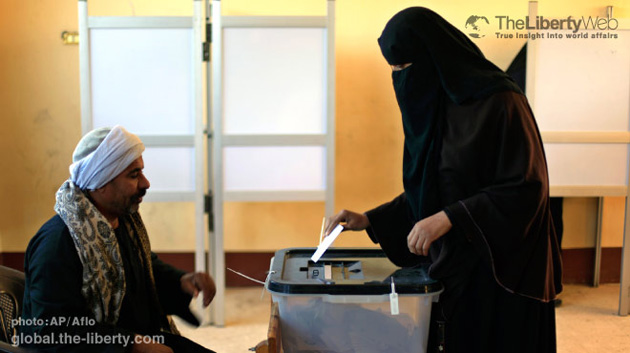The Mirage of Liberty? (Part 2)
--Will the Value of Liberty Take Root in the Middle East?
Egypt is infringing on the rights of the Coptic Christians
A very similar problem is occurring in Egypt now.
Although the majority of Egyptians are Muslim, a certain segment of the population belongs to a sect of Christianity called Coptic Christianity.
Because Islam tends to view swine as being extremely filthy creatures and to place strong taboos against eating pork, if a referendum were held in Egypt more than ninety percent of the people would decide that pigs are filthy and are therefore unnecessary. This is why in Egypt all pigs were incinerated in order to prevent the spread of swine flu.
But the Coptic Christian minority herds swine and has a custom of eating pork, so that the culling of all swine herds was, to the Coptics, not only a heavy blow to their financial rights, but also the equivalent of religious oppression. If the matter were put to a majority vote, however, the dominant Islam majority would win an overwhelming victory every time.
The Koran forbids the eating of pork, and also includes detailed reasoning regarding what may be consumed, based upon such criteria as whether an animal has a cloven hoof or not, and so forth. However, I think that all of these proscriptions and prohibitions came about because there was no refrigeration at the time that the Koran was written. Pork spoils faster than beef, and pigs often are host to parasites, so that there were likely many people who became sick and died after eating pork. Therefore, I conjecture that the Koran forbade the eating of pork as a practical means to keep people alive.
Today, though, we not only have refrigerators, but also a wide range of other modern tools and appliances like microwave ovens, etc. Therefore, perhaps our way of looking at things is different from what it once was. If Mohammed were alive today, I think that he would be unlikely to make the same kinds of warnings about eating the meat of pigs.
It is most likely that Mohammed warned people against eating pork because so many of his followers were dying, one after the other, from eating raw pork in the hot desert regions of Arabia. I don’t think that the injunction against eating pork has any sort of profound significance. I think, rather, that it is probably just a warning that was suited to the region in which Islam arose.
People today, however, take this injunction very seriously, which has even led to the rights of a small minority sect being trampled upon.
It is because of situations such as this one that the provisions in the latter half of Paragraph One of Article 20 are necessary. These provisions are meant to systematically guarantee the freedom of religion of those who happen to be in the minority.
While Anti-American sentiment is spreading across the region, moderates are insisting that people should stop cursing the West while they are relying on it for everything.
In Egypt, half of the population does not identify with the Muslim brotherhood, even though they are faithful Muslims.
However, right after the anti- American demonstrations took place, the United Nations held an assembly in October to discuss the issues of freedom of expression. The conflict between the West and Islamic nations was clear with the latter insisting on strong support for restrictions on the freedom of expression. However, the legislation for this restriction is highly likely to lead to the validation of censorship and detentions.
Master Ryuho Okawa clarified this point in his book titled Protect Our Nation at All Costs:
There are two types of nations if you view the worldwide trend. One type firmly maintains a policy that pursues liberty, and other type tries to suppress the power of liberty. If people were to become liberalized, the repressive authority would fear for the fall of the political regime. The government, which believes in civil liberties, would feel the opposite way.
In order for the people of this region to reap the benefits from the Arab Spring, people and their leaders should resolutely pursue liberty with the belief that their nations should not collapse as they put together reforms.



















